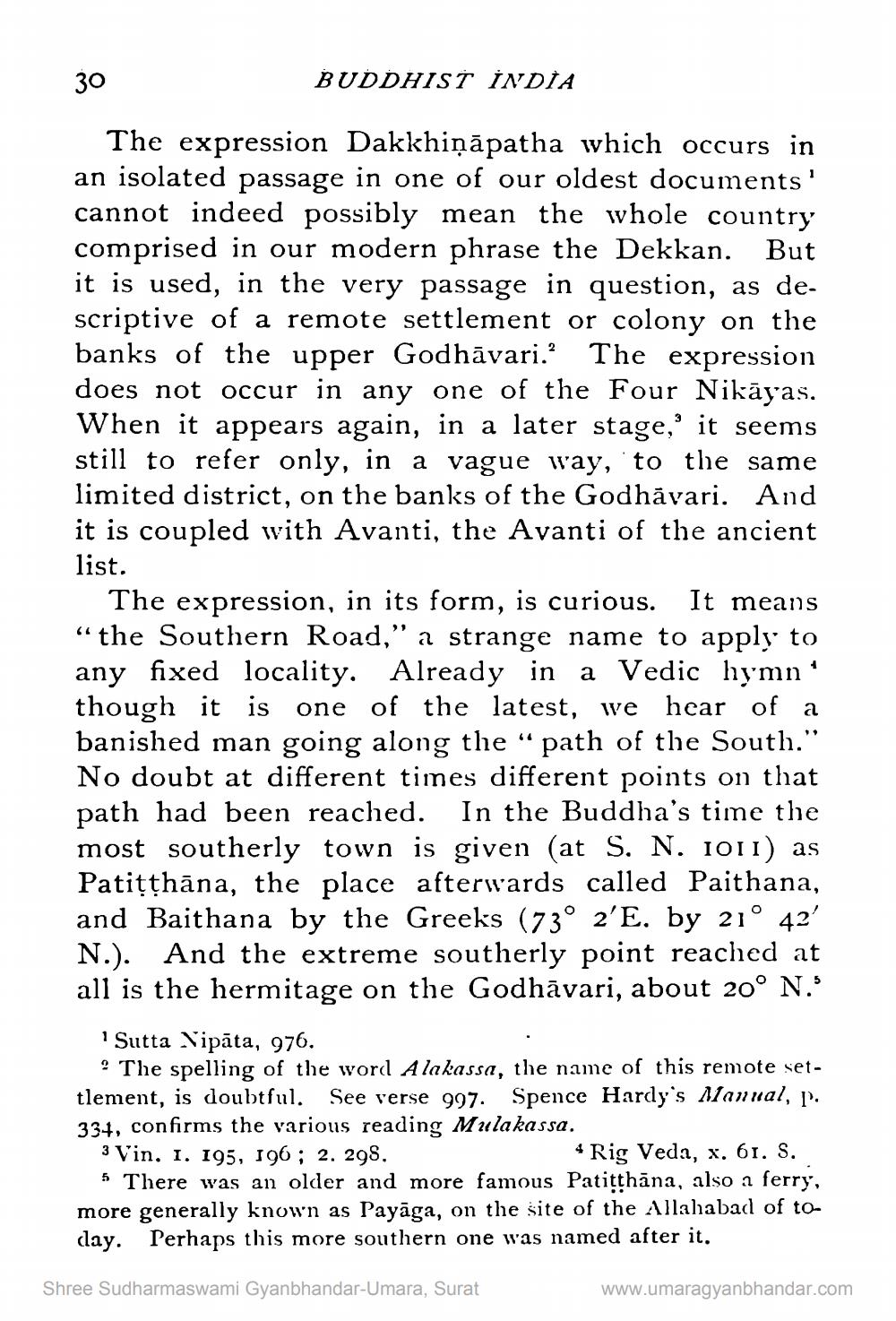________________
BUDDHIST İNDIA
The expression Dakkhiņāpatha which occurs in an isolated passage in one of our oldest documents' cannot indeed possibly mean the whole country comprised in our modern phrase the Dekkan. But it is used, in the very passage in question, as descriptive of a remote settlement or colony on the banks of the upper Godhāvari. The expression does not occur in any one of the Four Nikāyas. When it appears again, in a later stage, it seems still to refer only, in a vague way, to the same limited district, on the banks of the Godhāvari. And it is coupled with Avanti, the Avanti of the ancient
list.
The expression, in its form, is curious. It means “the Southern Road," a strange name to apply to any fixed locality. Already in a Vedic hymn' though it is one of the latest, we hear of a banished man going along the “ path of the South." No doubt at different times different points on that path had been reached. In the Buddha's time the most southerly town is given (at S. N. 1011) as Patiţthāna, the place afterwards called Paithana, and Baithana by the Greeks (73° 2'E. by 21° 42' N.). And the extreme southerly point reached at all is the hermitage on the Godhāvari, about 20° N.'
Sutta Vipāta, 976. ? The spelling of the word Alakassa, the name of this remote settlement, is doubtful. See verse 997. Spence Hardy's Manual, p. 334, confirms the various reading Mulakassa. 3 Vin. 1. 195, 196 ; 2. 298.
4 Rig Veda, x. 61. S. 5 There was an older and more famous Patitthāna, also a ferry, more generally known as Payāga, on the site of the Allahabad of today. Perhaps this more southern one was named after it.
Shree Sudharmaswami Gyanbhandar-Umara, Surat
www.umaragyanbhandar.com




